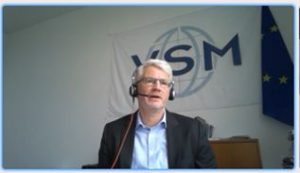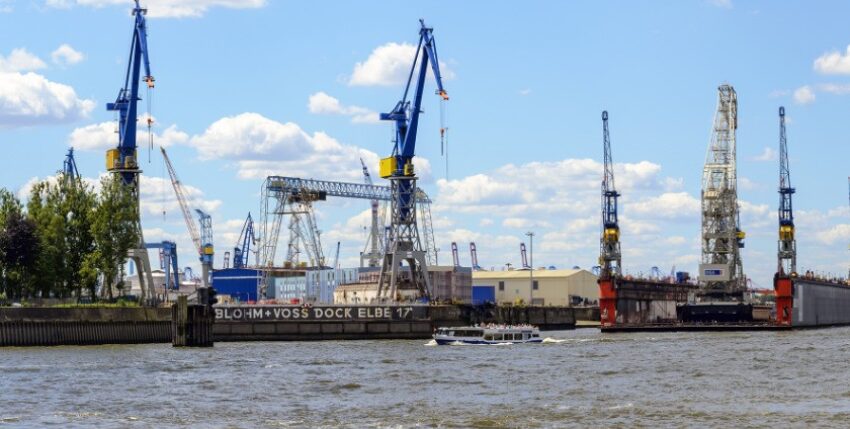The VSM (German Shipbuilding and Ocean Industries Association) has issued a clear call for decisions and decisive action
Chief Executive Reinhard Lüken comments on the situation in the association's October 2025 newsletter, saying that the German naval shipbuilding industry is efficient, but that administration and politics must improve their cooperation in order to actually utilise the opportunities presented by the turnaround in naval procurement.
Read the commentary in full:
"Russia is massively arming its navy - and our response is a task force." Bastian Ernst, Member of Parliament and rapporteur for the navy in the Defence Committee, was quoted with these words in a major daily newspaper in July. If the current news situation is correct, the pressure from parliament is also shared by the decision-makers in the Federal Ministry of Defence, the German Navy and the Procurement Office. The task force examining the options for action in the ongoing misery surrounding the F126, the German Navy's largest procurement project to date at almost €10 billion, has evidently delivered quickly.

One thing is certain: The navy needs ships in order to fulfil its mission. And as quickly as possible. The increasingly frequent hybrid attacks leave no doubt about the time pressure. This is not the time for hesitant action.
The approach now reported in the media of retaining the F126 under different industrial management on the one hand and additionally arranging for the procurement of a finished, proven design would be in line with the VSM's proposal. Unfortunately, it is still not possible to reliably predict the delays in the F126 production process. Nevertheless, it would be unwise to completely write off the efforts already made. Too many industrial players are involved through no fault of their own and could suffer existential damage. At the same time, the loss of trust in the general contractor is irreparable. A change in the role of general contractor would not initially reduce the challenges. However, trusting cooperation would become possible again and this is of central importance for pragmatic problem solving.
The additional procurement of an existing design would allow ships to be delivered much faster. The German shipbuilding industry has capacities that would enable rapid implementation. However, the calculation only works out if the official side also makes a massive move, because if all the usual German extra sausages (so-called gold-edge solutions) were to be taken into account again, the time gained would quickly be used up again. Many experts have understandable doubts as to whether this can be achieved despite the necessary haste.
If the decisions in this direction were confirmed, this would certainly be a great opportunity to really do justice to the turnaround in procurement for our navy.
Germany has a highly capable naval shipbuilding industry. This realisation must finally be internalised by the Navy, the BAAINBw and the BMVg. However, instead of being proud of the fact that the best naval ships and boats are built in Germany, the focus is always on the deficits. Admittedly, not everything runs smoothly on the industrial side either. But where is that the case? If you want strength, you have to be strong. The navy actually knows this better than anyone else.







